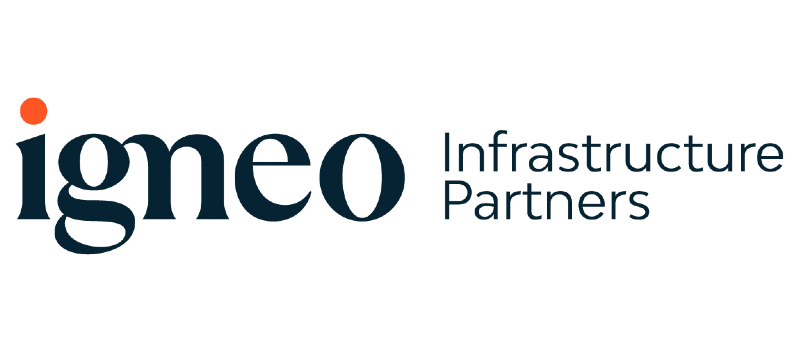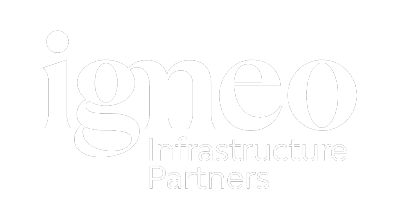We go beyond the limits of most credit analysis
Our global credit income strategy provides investors with higher yields than those on offer from cash and government bonds and diversification to complement equity exposures. Discover how we go the extra mile to navigate risks and opportunities in global markets.
Why invest with us in global credit?
We offer a range of actively managed strategies, as well as solutions for clients favouring a ‘buy and maintain’ approach. All utilise a proven investment process, incorporating disciplined in-house credit analysis and aiming to exploit relative value opportunities in global markets. We also have a proven ability to tailor bespoke, segregated mandates according to client requirements and have the local expertise to manage specialised regional portfolios.
A proven and differentiated investment philosophy: Since credit market returns are asymmetric, we focus on ‘avoiding the losers’ through rigorous credit analysis, combined with sophisticated portfolio construction focused on diversification.
Consistent long-term performance track record: Favourable risk-adjusted returns generated over 3-5 year time horizons.
Multi-dimensional credit research: Credit research focuses on assessing credit risk and identifying deteriorating issuers. Our analysis considers a variety of risk dimensions, enabling significant breadth.
Best-in-class Environmental, Social and Governance (ESG) integration: We have a vigorous Environmental, Social and Governance (ESG) process that is built in at both the company and product level. More importantly, ESG risk factors are an important consideration in the assignment of credit ratings on individual issuers.
Ky Van Tang
Co-Lead of Credit Research
Easyjet - our investment process in flight
Easyjet bonds had been held in our global credit funds for a few years. Earnings in the airline sector can be volatile due to fluctuating fuel prices and demand, but the bonds offered reasonable value for risk, in our view.
This example underlines the value of very diligent credit research, both prior to purchase and afterwards. Things can and do change - that's why we continue to actively research and monitor all securities held in our Global Credit funds. The intention is to remove deteriorating issuers from portfolios before default risk starts to materially affect valuations.
Avoiding investment in Easyjet bonds helped preserve capital in our Global Credit funds during the COVID-19 sell-off.
Despite the lower price, Easyjet bonds are not currently held in Global Credit portfolios. The risk associated with investing in airlines is still deemed too great.
Source: Bloomberg and First Sentier Investors as of 31 May 2020.
For illustration purposes only. Reference to specific securities (if any) is included for the purpose of illustration only and should not be construed as a recommendation to buy or sell the same. All securities mentioned herein may or may not form part of the holdings of First Sentier Investors portfolios at a certain point in time, and the holdings may change over time.
General Electric – losing power?
US-based conglomerate General Electric (GE) has been beset by questionable corporate governance practices, lack of transparency and a string of unexpected strategic announcements. The broader market appears to have extended GE some goodwill due to its ‘brand name’ rather than assessing the firm on underlying facts, though this appears to be changing gradually.
Our ESG risk rating on the company was initially raised in late 2017 and again in late 2018. Consequently, internal credit ratings have been consistently below the external ratings agencies. Our assessment on the credit and ESG risks, along with uncertainty on the company’s strategy and future credit profile prompted us to sell GE bonds in our global credit portfolios.
Risk assessment
- GE reduced the size of its Board amid significant operating deterioration, underlining the governance risks present. There have been repeated changes in leadership, which disrupt the business and can result in continual shifts in company strategy. Repeated negative surprises and management changes are red flags in terms of internal controls and suggest a lack of cohesion in strategy. Accordingly it is difficult to envisage what the company might look like in the medium term.
- Our greatest concern is that cash flow will be insufficient to service the company’s enormous debt load. At this stage we are unconvinced that the firm’s current plan to retain the Power, Renewable Energy and Aviation subsidiaries – along with parts of GE Capital – will remain intact. This is a serious concern from a credit perspective as underlying businesses face serious headwinds and as management priorities are spread thinly. Further, GE Capital’s debt is now guaranteed by the parent. We think GE Capital could be breakeven at best and could require significant capital contributions in the near term.
For illustration purposes only. Reference to specific securities (if any) is included for the purpose of illustration only and should not be construed as a recommendation to buy or sell the same. All securities mentioned herein may or may not form part of the holdings of First Sentier Investors portfolios at a certain point in time, and the holdings may change over time.
Nissan - falling behind the pack in the global car race?
Due to a number of environmental, social and governance concerns, our internal credit rating for Nissan has been below those of the major rating agencies for several years. The ratings agencies themselves have started to downgrade their ratings and outlooks for Nissan, moving more in line with our internal credit rating.
Risk assessment
- Nissan’s oversight of employee safety and supply chain social responsibility is relatively weak, in our view. Operations in emerging regions mean social and work force relations issues are often present for carmakers and there is an ongoing focus on safety and supply chain management in the industry.
- In some cases there can be complex shareholder structures to contend with, resulting in additional governance risks. In Nissan’s case, a structure of cross shareholdings exists between Nissan, Renault and Mitsubishi. This undermines the governance profile of Nissan, highlighted by the scandal involving Carlos Ghosn. The former Chairman/CEO was arrested on various charges of financial misconduct, including misappropriation of Nissan funds.
- There are also question marks over Nissan’s internal quality control systems given frequent safety issues and recalls. Recently the industry regulator discovered that unauthorised inspectors had been approving vehicle quality, resulting in a recall of 1.2 million vehicles in Japan. There have also been allegations of anti-competitive behaviour and misleading claims – a red flag from a governance perspective.
- The global auto industry is evolving, partly reflecting environmental risks and trends. Increasing consumer awareness of pollution has resulted in rising demand for cleaner and more efficient vehicles, including fully electric models. Nissan has produced more electric vehicles than many peers, but volumes remain low relative to total production.
For illustration purposes only. Reference to specific securities (if any) is included for the purpose of illustration only and should not be construed as a recommendation to buy or sell the same. All securities mentioned herein may or may not form part of the holdings of First Sentier Investors portfolios at a certain point in time, and the holdings may change over time.
Disclaimer: Reference to specific securities (if any) is included for the purpose of illustration only and should not be construed as a recommendation to buy or sell the same. All securities mentioned herein may or may not form part of the holdings of First Sentier Investors’ portfolios at a certain point in time, and the holdings may change over time.
Meet the investment team
Tony Togher
Craig Morabito
Ben Samuel
Ky Van Tang
Read our latest insights
Get the right experience for you
Your location :  Hong Kong
Hong Kong
Australia & NZ
-
 Australia
Australia -
 New Zealand
New Zealand
Asia
-
 Hong Kong (English)
Hong Kong (English) -
 Hong Kong (Chinese)
Hong Kong (Chinese) -
 Singapore
Singapore -
 Japan
Japan



























 United Kingdom
United Kingdom 